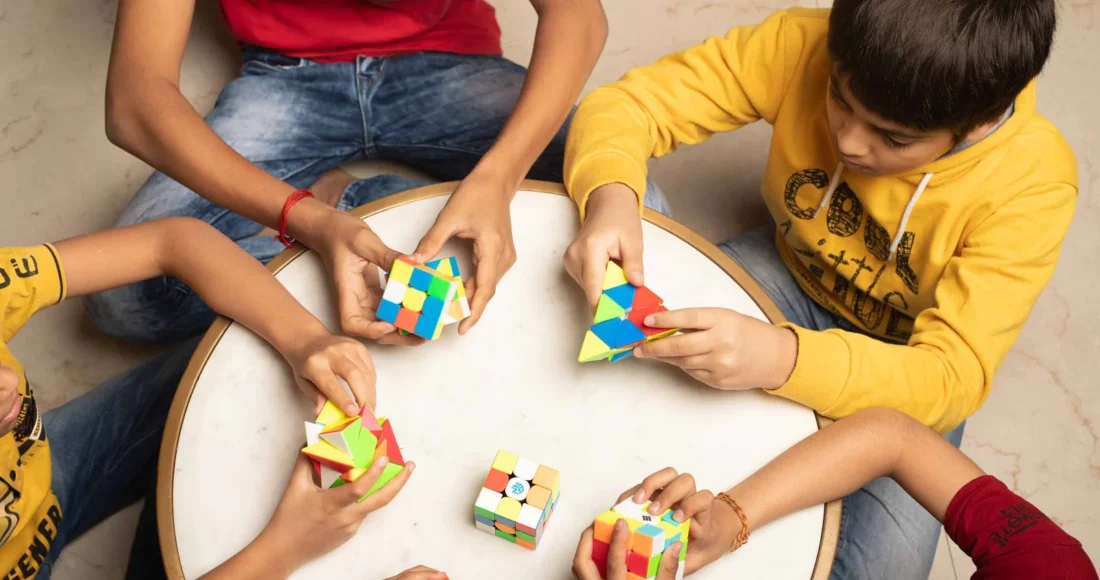In today’s fast-paced world, where technology dominates various aspects of our lives, the need to enhance cognitive abilities has become more crucial than ever. Students, in particular, are faced with an ever-increasing demand to excel academically and develop essential problem-solving skills. One effective and enjoyable way to achieve this is through mind games and puzzles. In this article, we will explore how puzzle-solving can significantly boost students’ cognitive abilities and why it is a valuable tool for their overall development.
1. The Power of Puzzle-Solving
Puzzle-solving is not just a form of entertainment; it’s a powerful mental exercise. Engaging in puzzles activates different areas of the brain, including the prefrontal cortex and the hippocampus. These regions are responsible for critical thinking, spatial awareness, and memory retention. As students tackle puzzles regularly, they strengthen neural connections and improve their cognitive abilities.
2. Enhancing Problem-Solving Skills
One of the most significant benefits of incorporating puzzles into a student’s routine is the improvement of problem-solving skills. Whether it’s a jigsaw puzzle, a crossword, or a logic-based brain teaser, each type of puzzle requires a unique approach to solve. As students face various types of challenges, they learn to think creatively, analyze information, and devise effective strategies to overcome obstacles.
3. Boosting Memory and Concentration
Memory and concentration are fundamental skills for effective learning. As students engage in puzzles, they exercise their memory and attention to detail. Remembering shapes, colors, and patterns in puzzles contributes to enhancing their overall memory capacity. Moreover, the focused attention required to solve a puzzle helps improve concentration, a skill that is transferable to academic settings.
4. Increasing IQ and Cognitive Flexibility
Research has suggested that regularly engaging in puzzle-solving can lead to an increase in IQ levels. IQ, or intelligence quotient, is a measure of cognitive abilities, and puzzles provide an enjoyable way to enhance this score. Furthermore, puzzle-solving promotes cognitive flexibility, enabling students to switch between different tasks and adapt to new challenges seamlessly.
5. Encouraging Perseverance and Resilience
Puzzles often present a level of difficulty that requires persistence to solve. When students encounter challenging puzzles, they learn the value of perseverance and develop resilience. Overcoming frustration and sticking with a problem until it’s solved instills a growth mindset, which can positively impact their approach to learning and other life challenges.
6. Fostering Social Interaction
While puzzle-solving is an individual activity, it can also be a fantastic way to foster social interaction. Group puzzle-solving encourages collaboration and communication, as participants share ideas and work together to reach a common goal. This interaction not only strengthens cognitive abilities but also enhances social skills, which are essential for personal and professional growth.
7. Reducing Stress and Anxiety
The academic environment can be stressful for students, and high levels of stress can hinder cognitive performance. Engaging in puzzles offers a therapeutic escape, providing a sense of relaxation and reducing anxiety. When students take a break from academic pressures to solve a puzzle, they return to their studies with a refreshed and clearer mindset.
8. Improving Time Management
Puzzle-solving involves setting goals and managing time effectively to achieve those goals. As students work on puzzles, they learn to allocate time efficiently and prioritize tasks. These time management skills carry over to their academic and daily lives, enabling them to become more organized and productive individuals.
9. Stimulating Creativity
Creativity is an essential aspect of problem-solving and critical thinking. Puzzles often require “out of the box” thinking and the ability to see things from different perspectives. By engaging in puzzle-solving activities, students stimulate their creative thinking abilities, which can be applied to various academic subjects and real-world situations.
10. Conclusion
In conclusion, puzzle-solving is not just an entertaining pastime; it’s a powerful tool for enhancing students’ cognitive abilities. The benefits of engaging in puzzles range from improved problem-solving skills and memory retention to increased IQ levels and cognitive flexibility. Moreover, the social and emotional benefits, such as fostering perseverance and reducing stress, make puzzle-solving a holistic approach to support students’ overall development. As educators and parents, incorporating mind games and puzzles into students’ routines can significantly contribute to their academic success and prepare them for the challenges of the future. So, let the games begin and watch your cognitive abilities soar to new heights!





